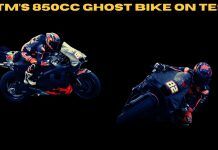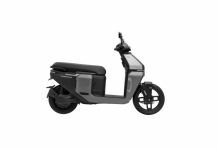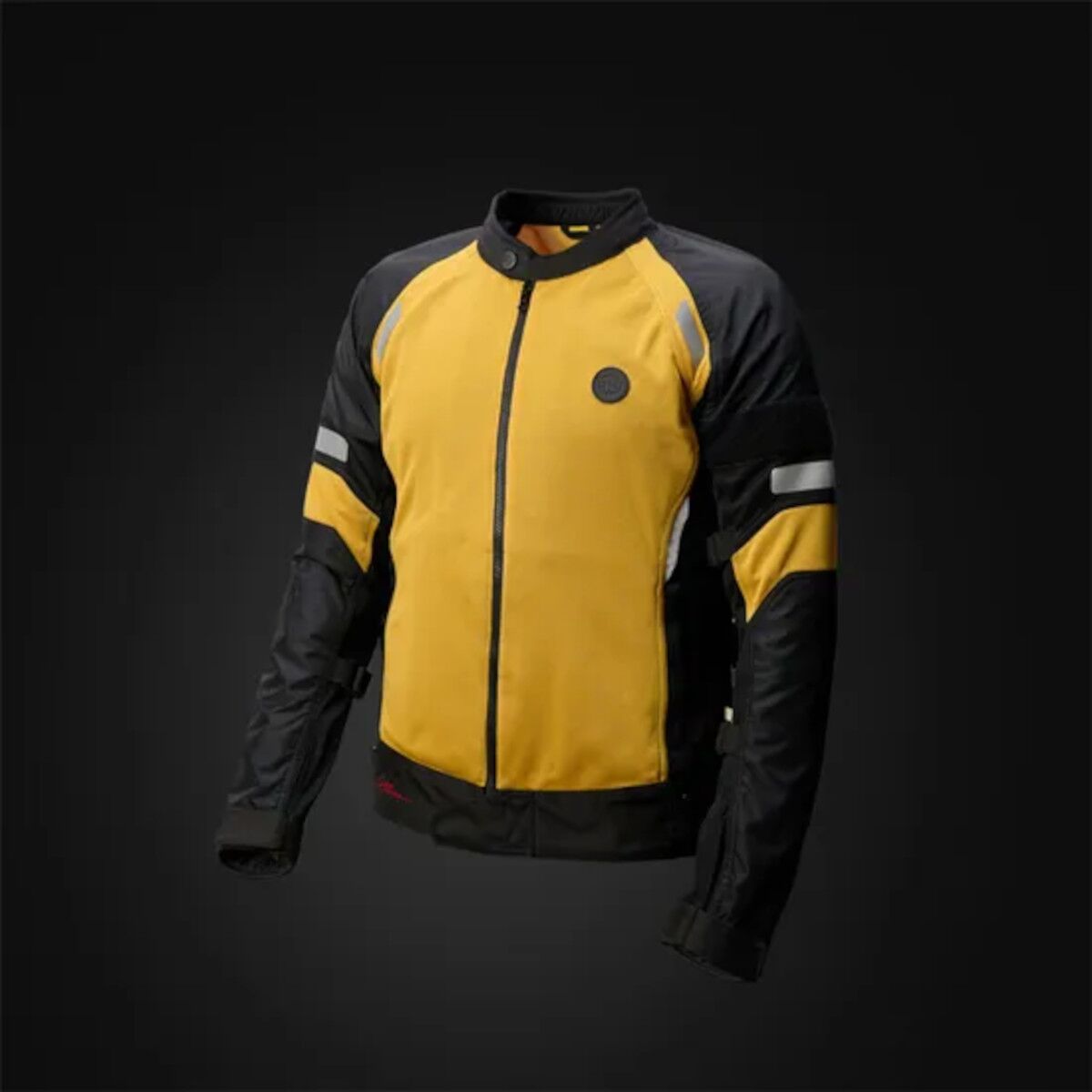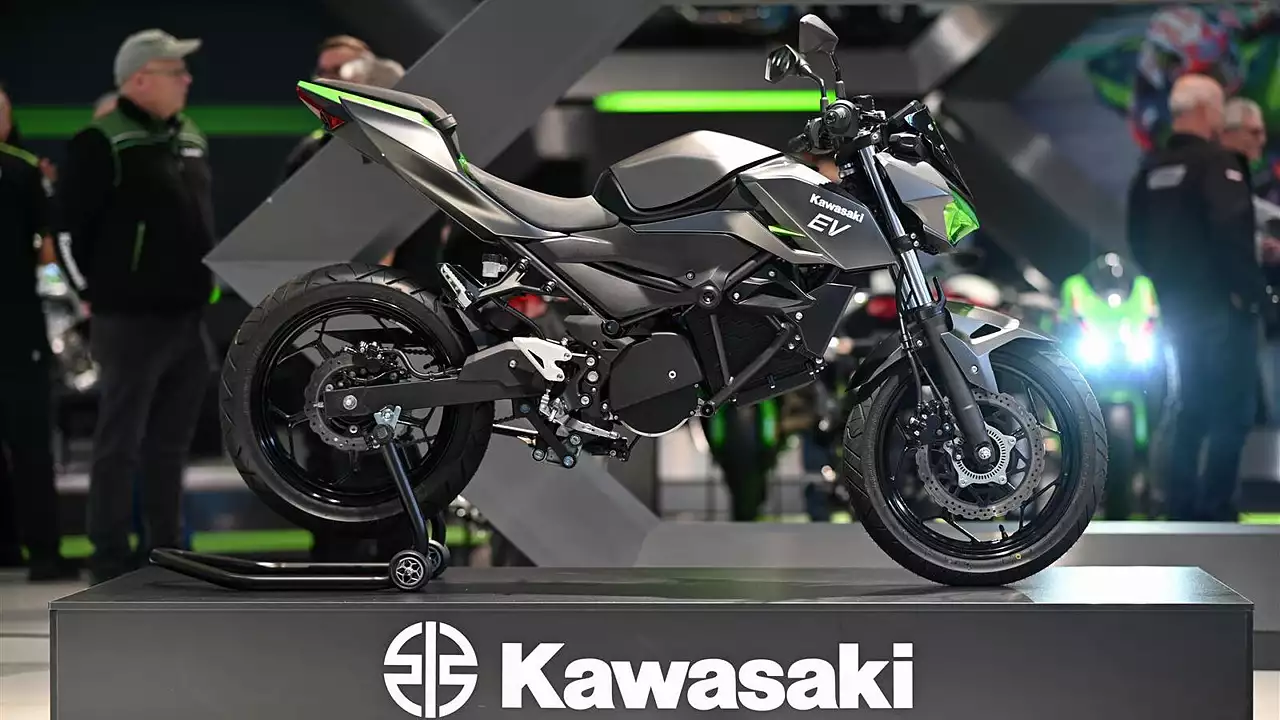Why Kawasaki Ninja 400?
Kawasaki is one of the most famous Japanese motorcycle brands, with a good reputation for safety, performance, reliability and innovation.
First released in 2018, the Ninja 400 has not been in production for very long but is already proving very popular in the market. The Ninja 400 is one of the smallest in the Ninja line-up of motorcycles.
The Ninja 400 has recently been overhauled, with Kawasaki keen to offer a more affordable alternative to the high-end sports bikes. Packing a punchy 399 cc liquid-cooled parallel-twin engine mated to a fuel injection system and a six-speed transmission produces upwards of 41bhp of power with plenty of low-end torque. It is easily capable of hitting a top speed of 100mph.
And this is the BS6-compliant Ninja 400 Kawasaki has introduced in India. The price starts from Rs.4,99,000( Ex-Showroom).
| Brand | Kawasaki |
| Name of the bike | Kawasaki Ninja 400 |
| This article is about | 2023 Kawasaki Ninja 400 Specs/Features, Price, Styling, Mileage, Video, Colours and Images |
| Category | Sports bike |
| Kawasaki Website | Kawasaki-India.com |
| LivingWithGravity Website | LivingWithGravity.com |
Comparison with the outgoing version
Despite the reduction in power and torque figures, the Ninja-400 offers a much better throttle response than its predecessor and carries the same engine that makes 399cc, liquid-cooled, parallel-twin engine with 45.3PS and 37Nm.
The torque figure has gone down by 1Nm for identical power output, but the power is now more linear and easier to manage at lower speeds.
Again, the updated slip-and-assist clutch with 20% lighter lever action makes this bike better than the outgoing model.
Ninja 400 Video
2023 Kawasaki Ninja 400 Specs/Features
Ninja 400 is a high-powered, para twin-cylinder sports bike which provides excellent value for money. The Ninja 400 offers a variety of features, including ABS and traction control. Like all Kawasaki bikes, the Ninja 400 is easy to manoeuvre and perfect for the beginner motorcyclist.
| ENGINE & TRANSMISSION | |
| TYPE | Liquid-cooled, 4-stroke Parallel Twin |
| DISPLACEMENT | 399 cm3 |
| BORE AND STROKE | 70.0 x 51.8 mm |
| COMPRESSION RATIO | 11.5:1 |
| VALVE SYSTEM | DOHC, 4 valves |
| FUEL SYSTEM | Fuel injection (φ32 mm x 2) |
| FUEL TYPE / MINIMUM OCTANE RATING | Unleaded petrol/RON91 |
| IGNITION | Digital |
| STARTING | Electric |
| LUBRICATION | Forced lubrication wet sump |
| TRANSMISSION | 6-speed, Return |
| MAXIMUM POWER | 33.4 kW {45 PS} / 10,000 rpm |
| MAXIMUM POWER WITH RAM AIR | – |
| MAXIMUM TORQUE | 37.0 N/m {3.8 kg/m} / 8,000 rpm |
Ninja 400 Engine
The Ninja 400’s 399 cm3 engine delivers a balance of performance and controllability. The engine offers increased performance at all rpm compared to its predecessor, with a good power feeling.
A smooth, predictable response contributes to an easy-to-control engine character. Thanks to its efficient design, the compact, lightweight engine has a size on par with 250cc engines. Connected to six-speed gearbox/transmission, the 399 cc engine makes 33.4 kW {45 PS} / 10,000 rpm and 37.0 N/m {3.8 kg/m} / 8,000 rpm.
Ninja 400 Top Speed and Mileage/ Fuel Economy
The new bike combines an aggressive style with the technology from Kawasaki’s race-winning heritage. It offers more fun than its predecessor.
The new 399 cc engine has a top speed of roughly 190 km/h, with plenty of power to cruise at incredible speeds. It’s a great bike for anyone looking to be more adventurous on the road and comes with a fuel economy of 25 km/l.
Ninja 400 Frame
The Ninja 400 features a trellis frame similar in design to that of the Ninja H2. Kawasaki’s advanced dynamic rigidity analysis ensures optimum rigidity with light weight. The engine is rigid mounted and used as a stressed member. The frame design contributes significantly to the bike’s low curb mass.
Ninja 400 Styling
In addition to contributing to the Ninja 400’s sharper looks, slim LED headlamps (each featuring low and high beams, as well as a LED position lamp) are highly visible and offer significantly increased brightness.
The updated Ninja 400 is a motorcycle aimed at young riders who don’t want to deal with the size or weight of more extensive sports touring motorcycles.
Regardless of displacement, head-turning looks have always been a forte of Ninja models. The new Ninja 400 boasts futuristic contemporary Ninja styling inspired by the mighty Ninja H2.
The large volume of bodywork attracts attention and gives the impression of a giant machine. This impression is reinforced by the high-class design and superb fit and finish, comparable to bikes from a larger-displacement class.
| DIMENSIONS & CHASSIS | |
| FRAME TYPE | Trellis, high-tensile steel |
| RAKE / TRAIL | 24.7° / 92 mm |
| TYRE – FRONT | 110/70 – 17 M/C 54H |
| TYRE – REAR | 150/60 – 17 M/C 66H |
| WHEELBASE | 1,370 mm |
| GROUND CLEARANCE | 140 mm |
| SEAT HEIGHT | 785 mm |
| CURB MASS | 168 kg |
| FUEL CAPACITY | 14 litres |
| OVERALL DIMENSIONS (L X W X H) | 1,990 mm x 710 mm x 1,120 mm |
Kawasaki’s first quarter-litre sport bike has been given an edgier look with its low-slung side fairings, tapered seat and compact ergonomics.
While the seat height is 785 mm, the seat’s slim design and the rear of the engine gives riders an unobstructed line for their feet to reach the ground.
Further, the frame and styling are shared with the Ninja 300.
The Ninja 400 is equipped with a sophisticated cockpit featuring a large analogue tachometer flanked by warning lamps on one side and a gear position indicator and multi-function LCD screen on the other.
Ninja 400 Safety and Brakes
Measuring ø310 mm (the same disc size used on the Ninja ZX-14R), the Ninja 400’s semi-floating front disc offers sure stopping power.
A rigid new front brake master cylinder helps eliminate ineffective (idle) stroke, contributing to controllability, while carefully selected brake hose dimensions and material contribute to brake touch. The new Ninja 400 also gets advanced ABS.
It’s a middleweight sport-touring machine makes a statement through its bold stance and powerful performance.
| BRAKES & SUSPENSION | |
| FRONT / WHEEL TRAVEL | Telescopic fork/120 mm |
| REAR / WHEEL TRAVEL | Swingarm / 130 mm |
| BRAKE – FRONT | Single 286 mm disc |
| CALIPER – FRONT | Dual-piston |
| BRAKE – REAR | Single 193 mm disc |
| CALIPER – REAR | Dual-piston |
Ninja 400 Colours
The Kawasaki Ninja 400 motorcycle is an updated bike and comes in two striking colours: Lime Green ( KRT Edition) and Metallic Carbon Grey.
How do you book?
It’s always better to get in touch with your nearest authorised dealers to understand the booking situation. However, you can also visit Kawasaki India’s website and fill in the booking form with details like your name, city, state and more and Kawasaki will get back to you.
Ninja 400 Waiting period
A primary attraction of the Kawasaki Ninja 400 is its features and design compared with other bike models in the same class. However, for most buyers, it’s a high-ticket item, so you may want to think it may have a long waiting period due to its demand.
The goods
The Kawasaki Ninja 400 is their smallest and most compact performance street bike. Although its size might imply that it’s best for smaller riders, the Ninja 400 has poise and composure, making it quick and fun to ride by all levels of riders.
With smooth engine response, agile handling, and impressive acceleration, the Ninja 400 is an uncompromising street bike that will excite you on each ride.
Not so good
Kawasaki doesnt offer upside-down forks on this 2023 Ninja 400 version. However, we may be able to see it in future.
Conclusion
Motorcycle lovers, there’s a lot to check out with the value-packed Kawasaki Ninja 400. It is one of the most affordable options in its class today, but don’t let its affordability fool you. The fuel-efficient Ninja 400 has many features that make it a fun and safe ride.
But I’m talking about more than just looks and practical effects. If you love well-rounded merchandise that can give value to your hard-earned money, this sporty runabout is compelling in more ways than one.































